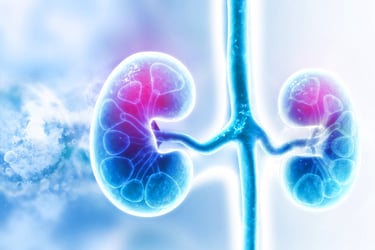eStoreRx™
Online Supplement Dispensary
eStoreRx™ is an easy direct-to-patient ordering & fulfilment program for lifelong wellness.
For over 40 years, Biotics Research Corporation has revolutionized the nutritional supplement industry by utilizing “The Best of Science and Nature”. Combining nature’s principles with scientific ingenuity, our products magnify the nutritional
eStoreRx™ is an easy direct-to-patient ordering & fulfilment program for lifelong wellness.
Biotics Research is proud to expand our commitment to education with the Wellness Unfiltered Pro Podcast. Each episode delves into key health topics and the clinical applications of our premier products. Through candid, insightful conversations, our team offers practical guidance to keep you informed and empowered as a healthcare professional.
February 12 2026
The results of a randomized, double-blind, placebo-controlled trial describing the effects of taurine supplementation on blood pressure and vascular f...
 A paper published recently in Molecular Biology Reports highlights various mechanisms by which very low carb diets or ketogenic diets (KDs) may be helpful for chronic kidney disease (CKD). Although research supports use of these diets for a wide array of medical conditions, exploration regarding efficacy for CKD is a new, emerging area.
A paper published recently in Molecular Biology Reports highlights various mechanisms by which very low carb diets or ketogenic diets (KDs) may be helpful for chronic kidney disease (CKD). Although research supports use of these diets for a wide array of medical conditions, exploration regarding efficacy for CKD is a new, emerging area.
Being that diabetes, hypertension, and obesity are among the strongest risk factors for CKD, it stands to reason that KDs may at least have the potential for therapeutic benefit, as this way of eating has been shown to facilitate weight loss, help put type 2 diabetes into remission and improve hypertension to the point where antihypertensive medication can be reduced or eliminated. Interestingly, the paper makes little mention of these more obvious factors and instead discusses reduced oxidative stress, reduced inflammation, reduced kidney fibrosis, and improved mitochondrial function as possible contributing mechanisms.
Unfortunately, most of the research cited in the paper are preclinical animal studies, but recent years have seen a few human studies published. In a study published last year looking at renal function in a small cohort of patients following a low-carbohydrate diet (LCD), patients with normal renal function or mild CKD experienced significant improvements in serum creatinine as well as in glycemic control and cardiovascular risk factors.
Carbohydrate restriction appears to also be beneficial among those with more advanced kidney disease. A retrospective cohort study looking at changes in estimated glomerular filtration rate (eGFR) in patients prescribed a LCD determined, “for patients with mildly reduced and moderately to severely reduced kidney function who were prescribed an LCD, their estimated glomerular filtration rate was either unchanged or improved. For those with normal or elevated eGFR, their kidney function was slightly decreased.”
There may be some concern regarding the amount of protein in a KD, but this way of eating is, first and foremost, very low in carbohydrate. The majority of calories come from fat, and protein intake can be targeted for individual needs across a range of total grams or percentage of daily calories.
Submit this form and you'll receive our latest news and updates.
“Although dietary interventions were once considered ineffective for managing lipedema, emerging evidence increasingly s...
Learn moreWith ever-increasing applications emerging for therapeutic ketogenic diets, it’s important for healthcare professionals ...
Learn moreThe Society of Metabolic Health Practitioners recently published a position statement on therapeutic carbohydrate reduct...
Learn more
*These statements have not been evaluated by the Food and Drug Administration. This product has not intended to diagnose, treat, cure, or prevent any disease.
© 2025 Biotics Research Corporation - All Rights Reserved
Submit your comment